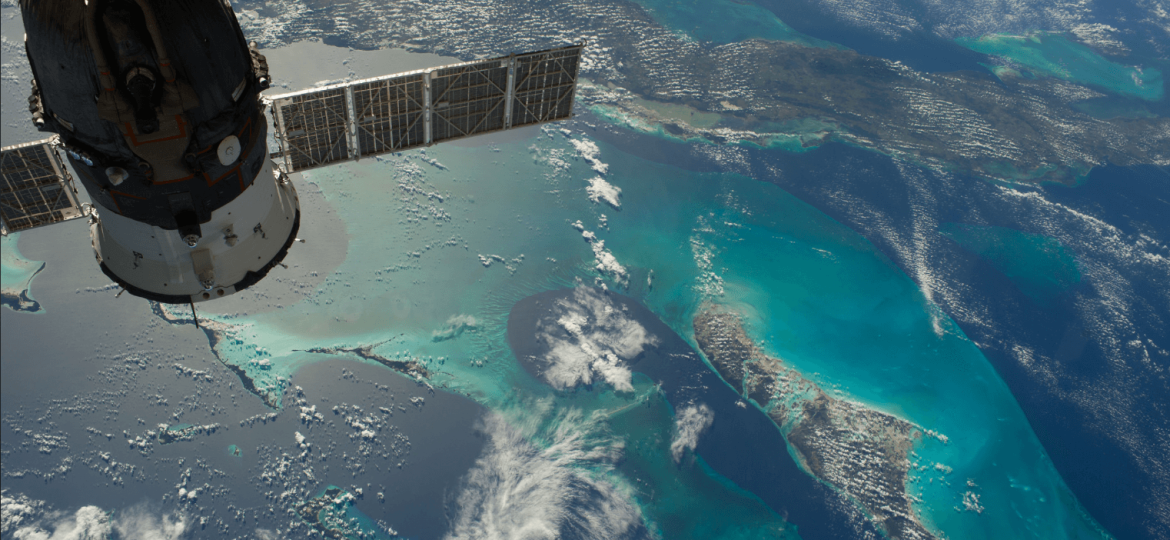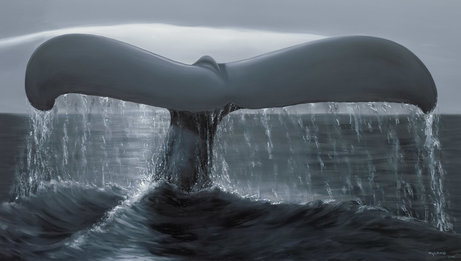
“Climate Quest”: Wyland Foundation’s Dynamic Response to Changing Weather Patterns
From El Niño to La Niña: Adapting to our Planet’s Shifting Climate with Science-Based Education
By Steve Creech
For the Wyland Foundation Member Blog Page
In an era where the impacts of climate change become more palpable with each passing season, Southern California’s schools have found a staunch ally in the Wyland Foundation’s Clean Water Mobile Learning Exhibit. For over ten years, this state-of-the-art, 1,000 sq. ft traveling marvel has embarked on a mission to fortify the understanding of water quality, conservation, and resource availability among students, many of whom hail from schools grappling with severely reduced field trip and science budgets.
This mobile powerhouse, known for its STEM-infused on-site experiential approach, effortlessly marries museum-quality exhibits with groundbreaking interactive learning stations. Complete with a 40-person multi-sensory theater, the Learning Exhibit transports students into the heart of issues affecting water supply today: eutrophication, non-point pollution, population effects, and sustainable behavioral adaptations.
Last year was particularly groundbreaking. Students were invited to an immersive, cinematic journey where they stepped into the shoes of Interstellar Science Students in the center’s revamped high-tech on-board surround theater. This innovative approach offered a panoramic view of Earth’s marine ecosystems, highlighting our planet’s mesmerizing beauty while underlining its inherent vulnerability.
Come next year, the Wyland Foundation is set to launch its newest content addition, tentatively titled “Climate Quest.” This groundbreaking cinematic production segment will let student voyagers explore how global warming accelerates the planet’s evaporation rate, tweaking our water cycle in profound ways. Seamlessly blending with our MVolunteer Water Project web application, “Climate Quest” promises to offer a holistic educational experience, emphasizing the impact of local volunteer activities on global greenhouse gas reduction.
The climate itself, however, has its plans. The recent deluge California experienced, a gracious nod from El Niño, brought a sigh of relief against recent years of prolonged droughts. But the shadow of La Niña looms, threatening prolonged dry spells. As water providers oscillate between hope and caution, the Wyland Clean Water Mobile Learning Exhibit has reaffirmed its commitment to emphasize the importance of water resource management to students, especially in underserved urban areas.
As fresh challenges emerge, we’re doubling down on our promise. We’re embedding new content that confronts climate concerns, the intricacies of the weather, and shifts in the water cycle. By weaving in climate science, we aim to equip students, especially those in grades 6-8, with a robust understanding of human actions’ repercussions on the environment. The gravitas of climate education cannot be overstated. A 2020 global study indicated that a mere 16% of secondary school students learning about climate change could slash CO2 emissions by a staggering 19 gigatons by 2050. Despite its profound impact, accessibility to quality climate education, especially in vulnerable communities, remains a challenge.
Our service goals for the coming academic year reflect our undying commitment. With potential backing from Edison, we’re gearing up to serve between 18,000 to 20,000 students from grades 3-7. Central to our mission is reaching out to students from low-income sectors in Southern California, ensuring at least 20% representation.
Our 360-degree approach involves:
Pre-visit learning: STEM-centered classroom modules on water conservation, aligned with next-generation science benchmarks.
Exhibition: Showcasing the best of the Wyland Clean Water Mobile Learning Center, tailored for up to 300 students, spanning grades 4-7.
And what can students anticipate?
– A deep dive into estuaries, coastal water runoff impacts, and the nuances of nonpoint source pollution.
– In-depth exploration of practices culminating in runoff, pollution, and the eutrophication process.
– A clear path to adopt practices that reduce environmental degradation, harmonized with Next Generation Science Standards.
– A comprehensive understanding of the interplay between human-induced climate change, water ecosystems, and the pivotal role of conservation.
In these challenging times, the Wyland Foundation remains steadfast in its pledge to be a beacon of knowledge, fostering a generation that understands, respects, and preserves our invaluable water resources.
